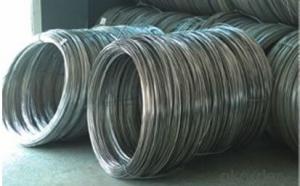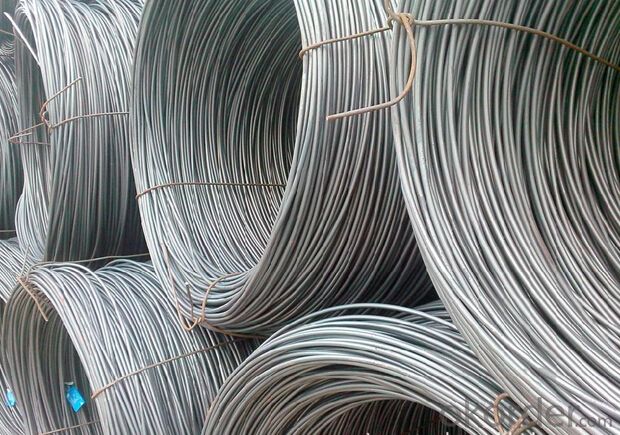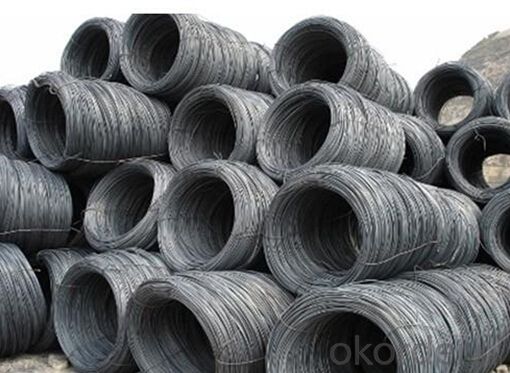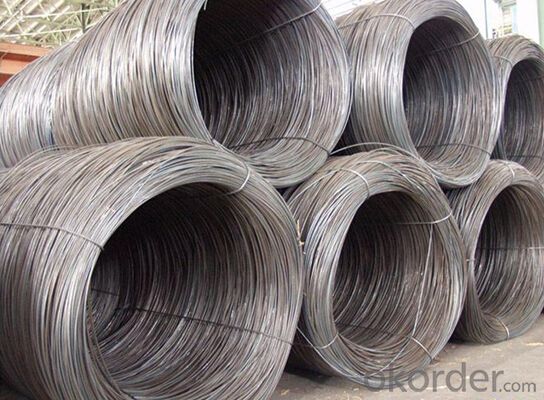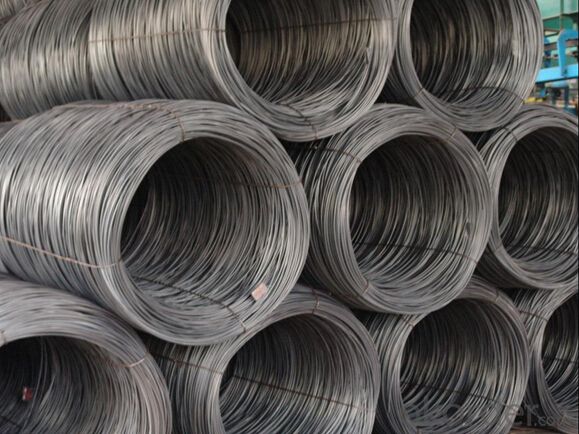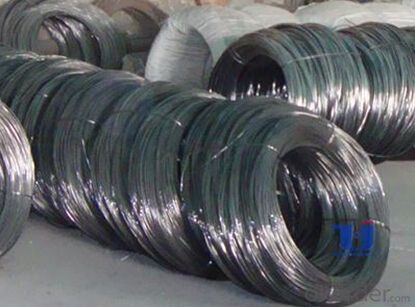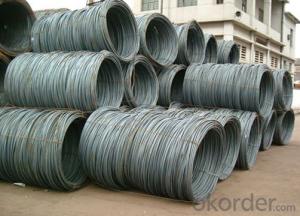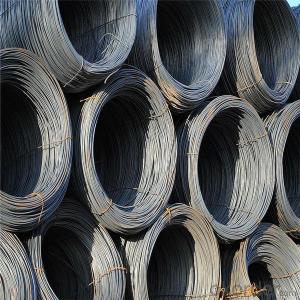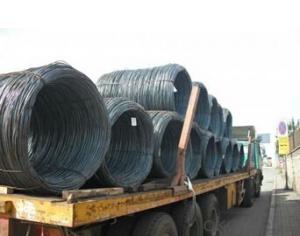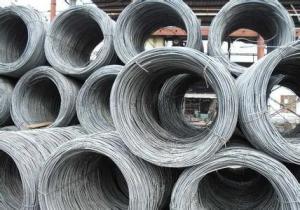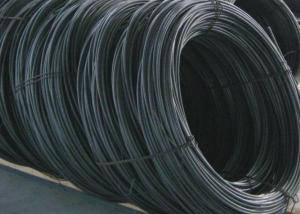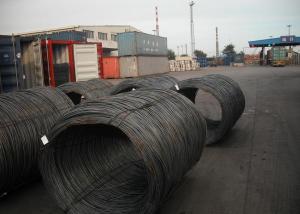Hot Rolled High Carbon PC Strand in Steel Wire Rod
- Loading Port:
- Tianjin
- Payment Terms:
- TT OR LC
- Min Order Qty:
- 25 m.t.
- Supply Capability:
- 10000 m.t./month
OKorder Service Pledge
OKorder Financial Service
You Might Also Like
Specification
Hot Rolled High Carbon PC Strand in Steel Wire Rod
Specification
Grade | Dia(mm) | Standard | Chemical Composition % | ||||||||
|
|
| C | Si | Mn | P | S | Ni | Cr | Cu | V |
YL77B | 5.5-13mm | GB/T24238-2009 | 0.75-0.80 | 0.10-0.30 | 0.60-0.90 | ≤0.025 | ≤0.025 | ≤0.10 | ≤0.35 | ≤0.20 |
|
YL82B |
|
| 0.80-0.85 | 0.10-0.30 | 0.60-0.90 | ≤0.025 | ≤0.025 | ≤0.10 | ≤0.35 | ≤0.20 | 0.15 |
SWRH62B |
| JIS G3506-1996 | 0.59-0.66 | 0.15-0.35 | 0.60-0.90 | ≤0.030 | ≤0.030 |
|
| ≤0.030 |
|
SWRH67B |
|
| 0.64-0.71 | 0.15-0.35 | 0.60-0.90 | ≤0.030 | ≤0.030 |
|
| ≤0.030 |
|
SWRH72B |
|
| 0.69-0.76 | 0.15-0.35 | 0.60-0.90 | ≤0.030 | ≤0.030 |
|
| ≤0.030 |
|
SWRH77B |
|
| 0.74-0.81 | 0.15-0.35 | 0.60-0.90 | ≤0.030 | ≤0.030 |
|
| ≤0.030 |
|
SWRH82B |
|
| 0.79-0.86 | 0.15-0.35 | 0.60-0.90 | ≤0.030 | ≤0.030 |
|
| ≤0.030 |
|
Chemical Composition
Grade | Chemical Composition(%) | |||||
C | Mn | Si | S | P | Cr | |
SAE1006B | 0.03~O.07 | ≤0.32 | ≤0.30 | ≤0.045 | ≤0.040 | 0.3-0.35 |
Mechanical properties | ||||||
Yield strength(N/mm2) | Tensile strength(N/mm2) | Elongation(%) | ||||
250-280 | 350-380 | ≥32 | ||||
Grade | Chemical Composition(%) | |||||
C | Mn | Si | S | P | Cr | |
SAE1008B | 0.10max | 0.3~O.50 | 0.15max | 0.050max | 0.040 max | 0.3-0.35 |
Mechanical properties | ||||||
Yield strength(N/mm2) | Tensile strength(N/mm2) | Elongation(%) | ||||
≥195 | 315-430 | ≥30 | ||||
Company Information
CNBM International Corporation is the most import and export platform of CNBM group(China National Building Material Group Corporation) ,which is a state-owned enterprise, ranked in 270th of Fortune Global 500 in 2015.
With its advantages, CNBM International are mainly concentrate on Cement, Glass, Iron and Steel, Ceramics industries and devotes herself for supplying high quality series of refractories as well as technical consultancies and logistics solution.
After-sale service | CNBM provides the services and support you need for every step of our cooperation. We’re the business partners you can trust; you can relax and get on with doing business. |
For any problem, please kindly contact us at any your convenient time, we’ll reply you in our first priority within 24 hours | |
Advantages | Industry experience over 20 years. |
Shipment of goods -More than 70 countries worldwide. | |
The most convenient transport and prompt delivery. | |
Competitive price with best service. | |
High technical production line with top quality products. | |
High reputation based on best quality products. |
Products Show
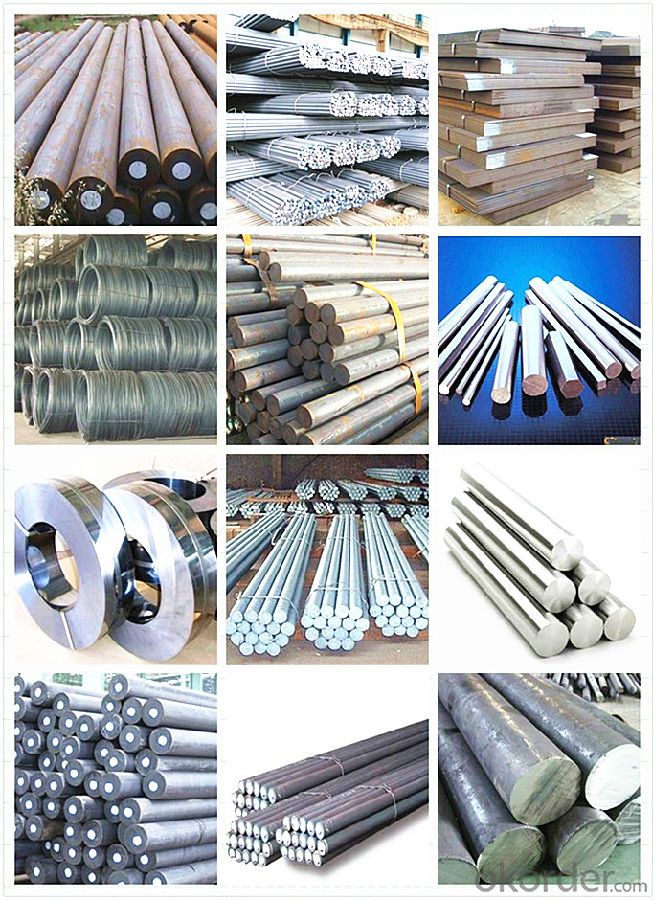
FAQ
Are you a trading company or manufacturer? | Manufacturer |
What’s the MOQ? | 3 metric ton |
What’s your delivery time? | 15-35 days after downpayment received |
Do you Accept OEM service? | Yes |
what’s your delivery terms? | FOB/CFR/CIF |
What's the Payment Terms? | 30% as deposit,70% before shipment by T/T |
Western Union acceptable for small amount. | |
L/C acceptable for large amount. | |
Scrow ,Paybal,Alipay are also ok | |
Why choose us? | Chose happens because of quality, then price, We can give you both. |
Additionally, we can also offer professional products inquiry, products knowledge train (for agents), smooth goods delivery, excellent customer solution proposals. | |
What's your available port of Shipment? | Main Port, China |
What’s your featured services? | Our service formula: good quality+ good price+ good service=customer's trust |
Where are your Market? | Covering more than 160 countries in the world |
- Q: What are the different methods of improving the creep resistance of special steel?
- There are several methods of improving the creep resistance of special steel, which are designed to enhance its ability to withstand long-term exposure to high temperatures and constant stress. Some of the methods commonly employed include: 1. Alloying: Special steel can be alloyed with specific elements to enhance its creep resistance. The addition of elements such as chromium, molybdenum, tungsten, and vanadium can significantly improve the material's ability to resist creep deformation. These alloying elements form strong carbides or intermetallic compounds, which impede the movement of dislocations and enhance the material's strength and resistance to creep. 2. Heat treatment: Precise heat treatment techniques can be employed to improve the creep resistance of special steel. Processes such as quenching and tempering, annealing, and normalizing can alter the steel's microstructure, leading to the formation of fine-grained and homogeneous structures that offer improved creep resistance. Heat treatment also helps in relieving residual stresses and improving the material's overall strength. 3. Grain refinement: Special steel can be subjected to processes that refine its grain structure, thereby enhancing its creep resistance. Techniques such as grain size reduction through controlled rolling, recrystallization, and severe plastic deformation can lead to the formation of smaller and more uniform grains. This refined microstructure hinders dislocation movement and improves the material's resistance to creep deformation. 4. Precipitation hardening: Special steel can be subjected to precipitation hardening methods, where the material is heated and then rapidly cooled to induce the formation of fine precipitates. These precipitates act as barriers to dislocation movement, improving the material's strength and creep resistance. 5. Surface modification: Special steel can be treated with surface modification techniques to increase its creep resistance. Methods such as shot peening, laser surface melting, and surface coatings can improve the surface integrity, reduce surface roughness, and introduce compressive residual stresses, all of which contribute to enhanced creep resistance. It is important to note that the selection and combination of these methods depend on the specific requirements of the application and the type of special steel being used. The aim is to optimize the material's microstructure, chemical composition, and surface characteristics to achieve the desired creep resistance and ensure long-term performance at elevated temperatures.
- Q: How does special steel ensure product reliability?
- Special steel ensures product reliability through its unique properties and manufacturing processes. Special steel is designed to have exceptional strength, durability, and resistance to corrosion, wear, and fatigue. These enhanced properties make it suitable for various critical applications where reliability is paramount, such as in automotive, aerospace, energy, and infrastructure industries. Special steel undergoes rigorous quality control measures during its production to ensure consistency and adherence to specific standards. This helps in minimizing variations and defects, ensuring that the final product meets the required specifications and performs reliably under challenging conditions. Additionally, special steel's ability to be tailored and customized enables manufacturers to create products that are precisely engineered to withstand specific operating environments, further enhancing their reliability.
- Q: Can special steel be used in medical applications?
- Yes, special steel can be used in medical applications. Special steel, also known as stainless steel, is widely used in the medical field due to its unique properties and advantages. It is highly resistant to corrosion, which is essential in medical environments where contact with bodily fluids and sterilization processes are common. Additionally, special steel is biocompatible, meaning it does not cause adverse reactions when in contact with human tissues or fluids. This makes it suitable for applications such as surgical instruments, orthopedic implants, dental equipment, and medical devices. The versatility of special steel allows it to be shaped into various forms, ensuring it can be utilized for different medical purposes. Its strength and durability also contribute to its effectiveness in medical applications, providing long-lasting and reliable tools and equipment. Furthermore, special steel can withstand high temperatures, making it suitable for autoclaving and other sterilization methods. Overall, special steel's properties make it a highly suitable material for medical applications, ensuring the safety, efficacy, and durability of medical equipment and devices.
- Q: Can special steel be used for making power generation equipment?
- Yes, special steel can be used for making power generation equipment. Special steel is known for its high strength, durability, and resistance to corrosion, making it an ideal choice for manufacturing components such as turbines, generators, and boilers that are used in power generation processes.
- Q: How does special steel contribute to reducing product lead times?
- Special steel contributes to reducing product lead times by offering unique properties such as high strength, durability, and corrosion resistance. These properties enable manufacturers to produce components and parts with greater efficiency and accuracy. By using special steel, production processes can be streamlined, leading to faster manufacturing cycles and reduced lead times. Additionally, the superior performance of special steel allows for enhanced tool life and reduced maintenance, resulting in increased productivity and shorter production timelines.
- Q: How does special steel perform in impact loading conditions?
- Known for its exceptional performance in impact loading conditions, special steel possesses remarkable strength, toughness, and resistance to deformation, thanks to its unique composition and manufacturing process. By effectively absorbing and dissipating energy, special steel minimizes the risk of catastrophic failure or damage when subjected to impact loading. The high strength of special steel enables it to withstand high impact forces without experiencing significant deformation or fracture, making it particularly suitable for applications where impact loading is prevalent, such as in the construction of heavy machinery, automotive components, and structural elements. In addition to its strength, special steel's toughness plays a crucial role in its performance during impact loading conditions. With excellent fracture toughness, special steel can resist crack propagation and absorb impact energy without fracturing, ensuring that it can withstand sudden and severe impacts without compromising its structural integrity. Furthermore, special steel is often subjected to treatments that enhance its resistance to impact loading conditions. Processes like heat treatment, forging, and quenching and tempering can increase the material's hardness and strength, further improving its ability to withstand impact forces. To summarize, special steel excels in impact loading conditions due to its high strength, toughness, and resistance to deformation. Its efficient energy absorption and dissipation, coupled with its resistance to fracture, make it an ideal choice for applications where impact loading is a concern.
- Q: How does special steel contribute to the performance of industrial machinery?
- Special steel contributes to the performance of industrial machinery by providing enhanced strength, durability, and resistance to corrosion and wear. It enables the manufacturing of components that can withstand high temperatures, heavy loads, and harsh operating conditions, thereby improving the overall efficiency and lifespan of the machinery. Additionally, special steel alloys offer excellent machinability and formability, allowing for precise and complex designs, ultimately enhancing the functionality and reliability of industrial machinery.
- Q: How does special steel contribute to reducing maintenance costs?
- Special steel contributes to reducing maintenance costs by providing increased durability and resistance to wear and corrosion. Its superior strength and hardness properties make it less susceptible to damage, thereby reducing the frequency of repairs and replacements. Additionally, special steel's ability to withstand extreme temperatures and harsh environmental conditions extends the lifespan of components, reducing the need for frequent maintenance and associated costs.
- Q: What are the properties of high-temperature stainless steel?
- High-temperature stainless steel possesses excellent corrosion resistance, heat resistance, and oxidation resistance, making it suitable for use in extreme environments with elevated temperatures. It maintains its strength and mechanical properties even at high temperatures, making it ideal for applications such as furnace components, steam generators, and exhaust systems.
- Q: How does special steel contribute to the nuclear industry?
- Special steel plays a crucial role in the nuclear industry by offering unique properties such as high strength, heat resistance, and corrosion resistance. It is used in critical applications like reactor pressure vessels, steam generators, fuel cladding, and containment structures. The exceptional performance of special steel ensures the safety, reliability, and longevity of nuclear power plants, making it an indispensable material for the industry.
Send your message to us
Hot Rolled High Carbon PC Strand in Steel Wire Rod
- Loading Port:
- Tianjin
- Payment Terms:
- TT OR LC
- Min Order Qty:
- 25 m.t.
- Supply Capability:
- 10000 m.t./month
OKorder Service Pledge
OKorder Financial Service
Similar products
Hot products
Hot Searches
Related keywords
